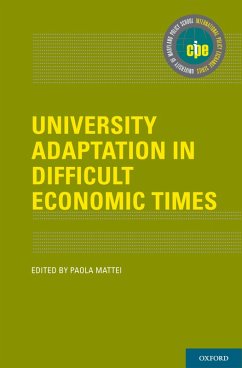Financial sustainability is one of the key challenges confronting Europe's universities today. Despite the fact that universities are at the centre of knowledge creation and development, which itself is seen as one of the main engines of economic growth, public funding of higher education in most countries is not increasing or at least not increasing enough in real terms. "Democratisation of higher education" has led to the fact that the higher education budgets per student are relatively low in most European countries compared to Europe's competitors. Despite declarations of intent to increase spending on higher education and research, it is not very likely that public expenditure will grow significantly on average in Europe and therefore be able to keep up with rapidly inflating costs in the years to come. One of the reasons for this is that higher education and research have to compete with other priorities in public budgets (e.g., security, health, etc.). Furthermore, the recent economic downturn has contributed to the decision in many European countries to decrease the levels of investment in higher education and research. Such trends are particularly worrisome for universities across Europe, whose continuing dependence on public funding puts their future sustainability under pressure. New funding schemes and incentives have been discussed and introduced in many European higher education systems, including competitive funding schemes for research under the name of "excellence" policies. Despite the different national institutional configurations in Europe, higher education systems face similar demands of promoting sustainable funding models, maintaining high academic standards, and equality. Thus, financial sustainability is not an end in itself; it aims to ensure that the public university's goals are reached by guaranteeing that the institution produces sufficient income to enable it to invest in high quality education and produce equitable outcomes. For these reasons, this book analyses funding reforms from a multidimensional approach.
Dieser Download kann aus rechtlichen Gründen nur mit Rechnungsadresse in A, B, BG, CY, CZ, D, DK, EW, E, FIN, F, GR, HR, H, IRL, I, LT, L, LR, M, NL, PL, P, R, S, SLO, SK ausgeliefert werden.


